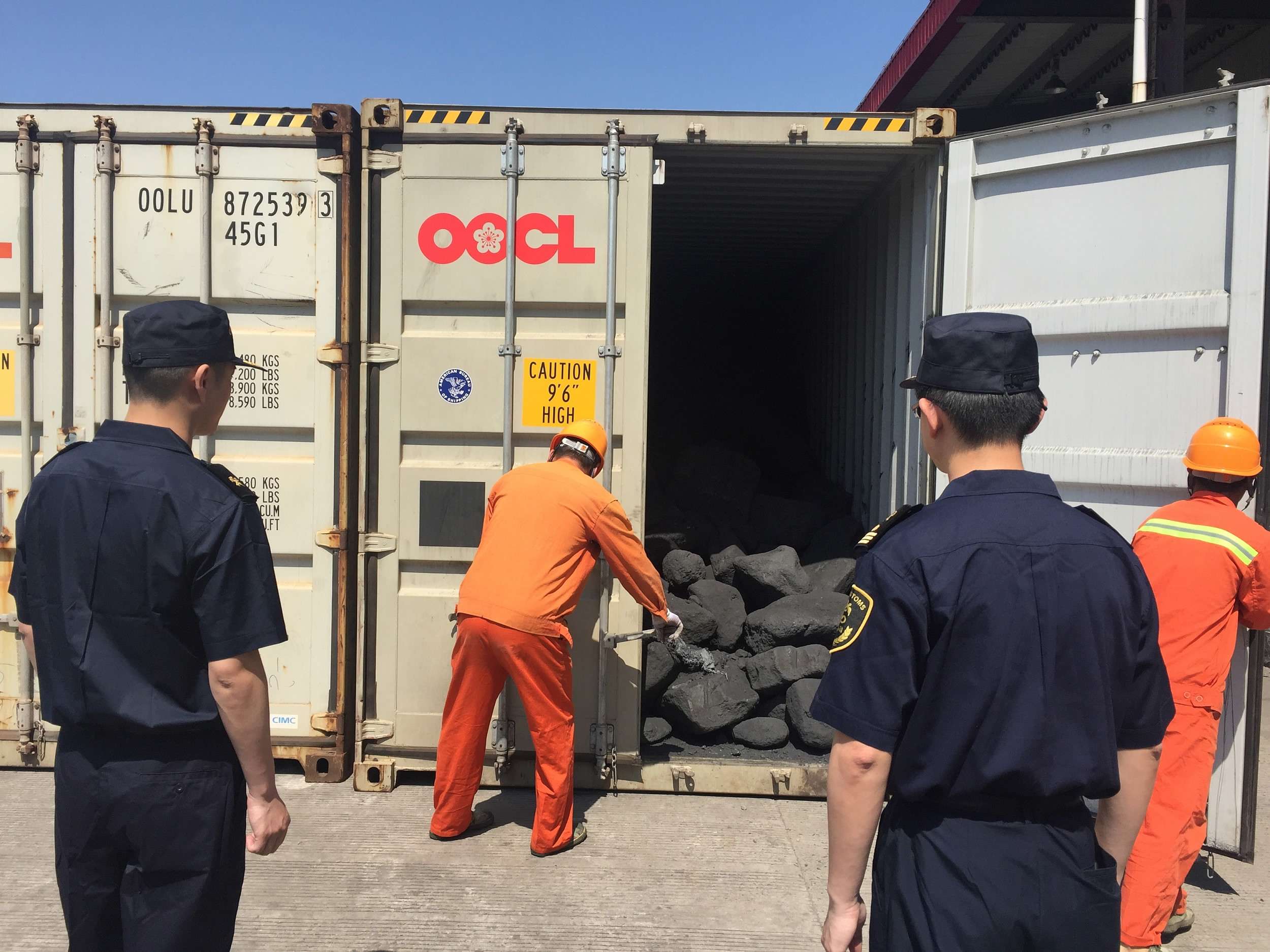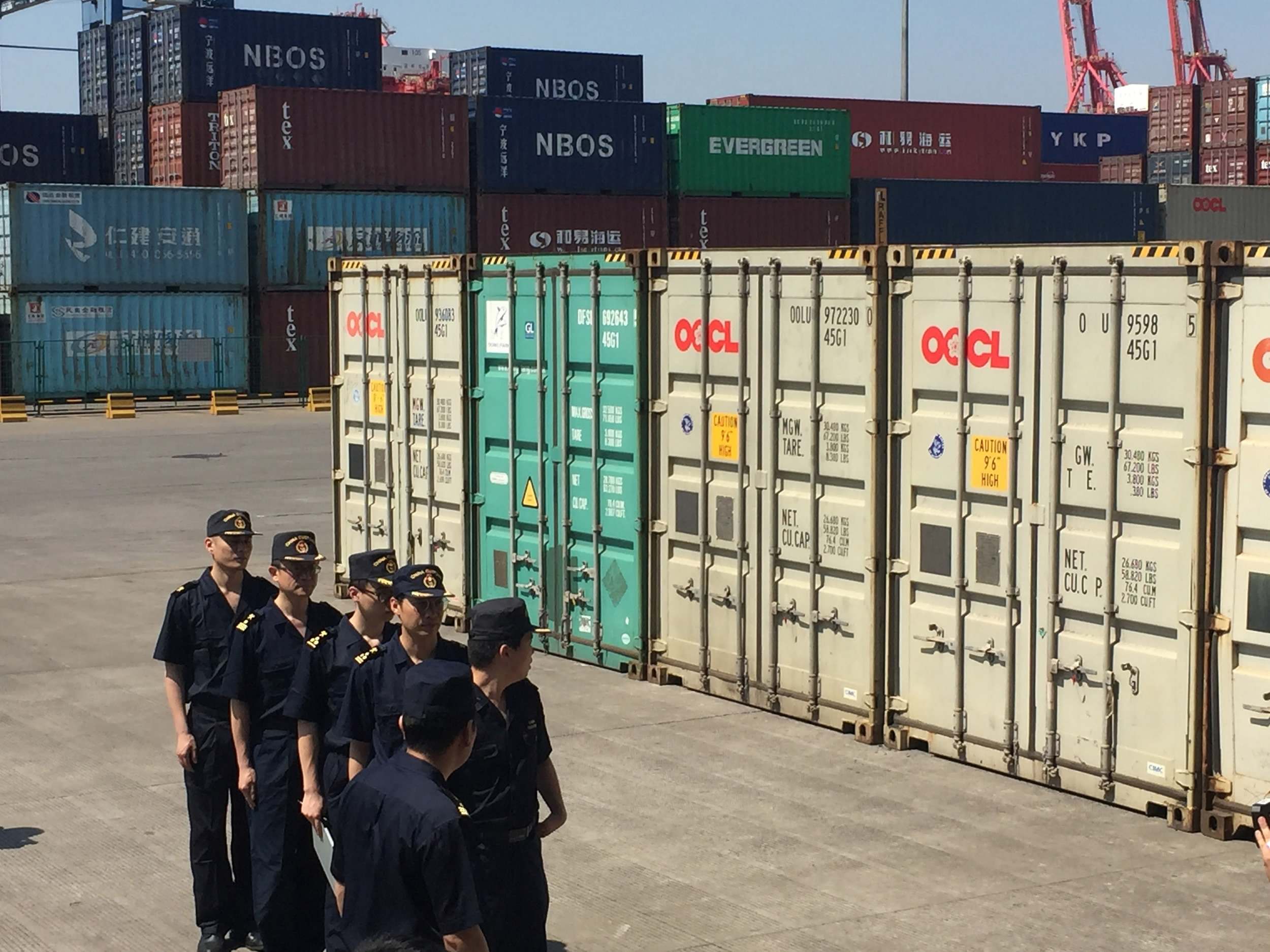China's environmental watchdog confirmed Thursday that the country will ban the imports of 24 types of solid wastes by the end of the year, as part of a campaign against environment pollution.
"Some businessmen have sped up imports of high-polluting solid wastes for their own interests, which has led to serious environmental problems," said Guo Jing, director general of the Department of International Cooperation of the Ministry of Environmental Protection (MEP).
Guo vowed to crack down on such imports and said the pollution caused by "foreign garbage" has harmed people's health, sparking public protests.

Customs officers check smuggled foreign wastes in east China's Hangzhou, Zhejiang Province, on May 18, 2017. /VCG Photo
On Tuesday, China notified the World Trade Organization of the ban, which will cover waste plastic and paper, slag from steelmaking, and many kinds of waste wool, ash, cotton and yarn.
"We found that large amounts of dirty wastes or even hazardous wastes are mixed in the solid wastes that can be used as raw materials, which have polluted China's environment seriously," China's WTO filing said.

Checking smuggled foreign wastes in east China's Hangzhou, Zhejiang Province, on May 18, 2017. /VCG Photo
"To protect China's environmental interests and people's health, we urgently adjust the imported solid wastes list, and forbid the import of solid wastes that are highly polluted," the statement adds.
In order to better control the transfer of hazardous wastes among countries and protect people's health and the environment, the Basel Convention on the Control of Transboundary Movements of Hazardous Wastes and their Disposal was adopted in 1989 and China was one of the signatories.

May 18, 2017, Hangzhou City, Zhejiang Province: Customs officers check smuggled foreign wastes. /VCG Photo
But some countries still use various ways to illegally transfer dangerous waste, Guo said.
The Chinese government mapped out a reform plan in April to improve management of solid waste imports to protect environmental security and public health, and the MEP launched a campaign this month to crack down on pollution caused by imported waste.
China is a major importer of waste, which are used as raw material for industrial production.
Last year it imported 7.3 million tons of waste plastics, valued at 3.7 billion US dollars, accounting for 56 percent of the world's total, according to data from the MEP.









